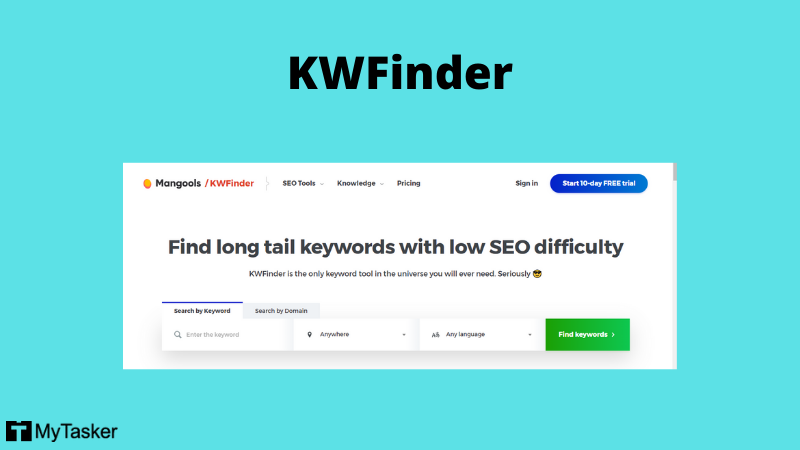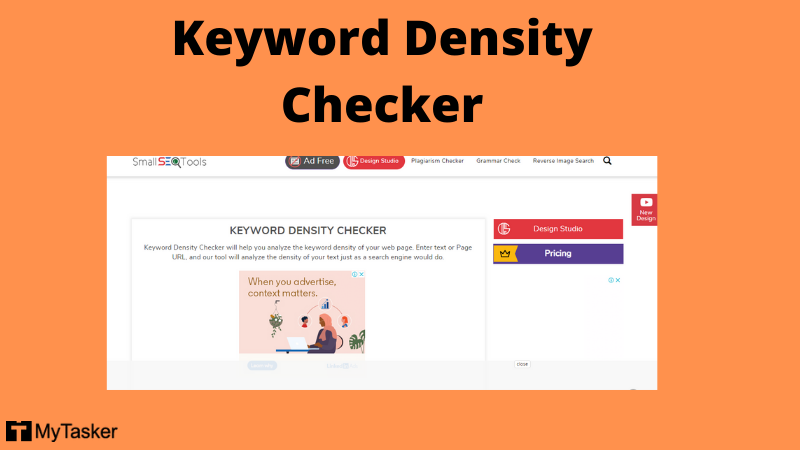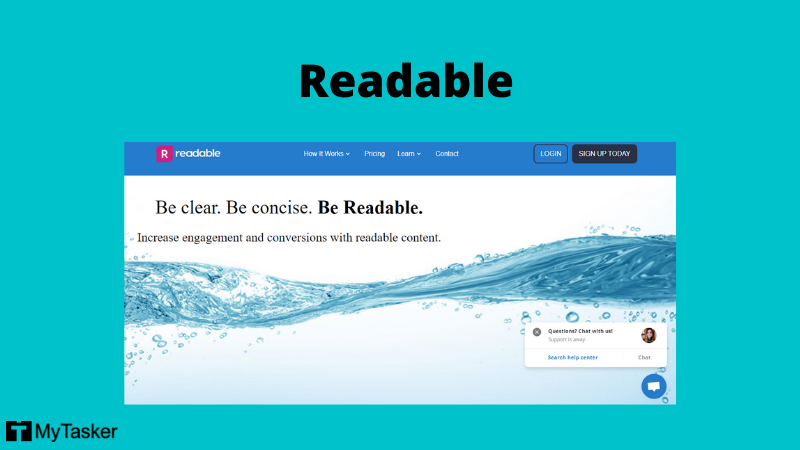Google considers hundreds of ranking factors to index and rank web pages on its Search Engine Results Pages (SERPs). Using the best content writing tools can help you write content that ranks highly on Google search results. This process is called Search Engine Optimization (SEO).
Writing and optimizing every blog post can be a time-consuming task without such writing tools. These online tools can not only save your time and labor but also boost your engagement with your audience.
This blog has described ten of the best tools for content writing that can push up your rank on Google.
- Google Keyword Planner
- KWFinder
- BuzzSumo
- Grammarly
- Yoast SEO
- SEMRush Writing Assistant
- WordStream
- Linkody
- Keyword Density Checker
- Readable
How do bloggers write content for SEO?
Before moving on to the writing tools, you should know that writing SEO-friendly and readable blog posts are significant.
That being said, here are some tips on how bloggers write content for SEO on different blogging platforms:
- Do keyword research and prepare a list of target keywords
- Before you write, think about the purpose of your article
- Create a clear structure for your blog post
- Break your article into paragraphs and proper headings
- Include related keywords throughout your content
- Optimize the length of your blog post
- Link internally to other posts on your website
- Link externally to high-authority websites
- Write content for humans, not for search engines
Why do you need content writing tools for SEO?
Well, digital marketers and SEO executives need to make sure they target the right keywords. They also have to decide what topic each blog post should cover and how long each blog post should be.
In addition, the target audience must be able to find and trust your content easily. That means digital marketers have to optimize URLs and meta tags.
The spelling and grammar of the content should be spot-on, too.
As you can see, there are many requirements for producing and optimizing content. SEO executives and digital marketers can automate many of these requirements using the best content writing tools.
These content creation tools can also help save your time and effort in optimizing your articles. That is why you need the right content writing tools for SEO.
The 10 best content writing tools for SEO
Let us take a look at some of the most effective writing tools to create optimized and accessible content:
1. Google Keyword Planner

One of the best SEO blog writing tools is Google Keyword Planner. Writers or bloggers who are just starting SEO can use this tool for primary keyword targeting research.
Enter a keyword or keyword phrase to check how popular that search term has been over time. Simultaneously, you can discover a list of new or related keywords to target for SEO.
Regardless of how you use it, this tool helps you write your content with a purpose. Doing so makes it easier for your content to reach the right audience.
2. KWFinder

This tool provides a list of keyword suggestions, but that is not all. Once you type a keyword into KWFinder, you will get exposed to detailed keyword data.
Such data might include Cost-per-click or CPC costs, the accurate search volume for each keyword, the search trends for the keyword you entered, and how difficult the keyword might be to rank for on Google.
You can also get a bird’s-eye view of the current SERP for your chosen keyword. This overview can help you lay down strategies to generate organic traffic for your blog.
3. BuzzSumo

You want your audience to be interested in and engage with your writing. This can happen only when your audience finds it informational enough to share it on social platforms.
With BuzzSumo, you can find out what types of content people are sharing across different social networks. In other words, it is useful for pinpointing trending content. The trends can be analyzed over the past day, month, or year, depending on your choice.
First, enter a website URL to identify which pieces of their content are the most popular ones. You will notice how many times each content piece has been shared on Facebook, Twitter, Reddit, and Pinterest.
Simultaneously, BuzzSumo gives you insights into the number of links each content piece contains, along with the total engagement.
The tool also supports negative keywords so that you can identify the data you are looking for more easily.
Ultimately, this list of popular content pieces will help you understand what kind of content you should write for more engagements. It is a great tool to keep yourself updated with the new content trends and analyze your content against that of your competitors.
4. Grammarly

Google usually ranks a specific article for a specific keyword because it is the best content available for that keyword. In this scenario, Google considers the quality of the content, and how well that content has been able to address users’ questions.
You cannot ignore spelling and grammar when it comes to content quality. If your website contains spelling errors, it is less likely to rank high on search engines.
Grammarly can help you create grammatically correct content without spelling and punctuation errors. Its premium version also has an anti-plagiarism feature to ensure your content is original and unique.
No matter what type of content you are creating, Grammarly helps you refine it before it is published.
5. Yoast SEO

Yoast SEO is a WordPress plugin and one of the most popular SEO blog writing tools. It helps you optimize blog posts on your WordPress website with real-time feedback.
This plugin displays a checklist of things you need to do to optimize each blog post for on-page SEO. On your WordPress dashboard, Yoast SEO also shows you an overview of how many of your posts are search engine optimized.
Plus, it helps you create meta titles, meta descriptions, and URL slugs for each post.
If you are a beginner, a meta title or title tag displays a webpage’s topic on SERPs. Meta descriptions are HTML elements providing a two-three sentence summary of the webpage on SERPs. As for a slug, it typically refers to the end part of the URL, following the backslash.
When done right, all three elements can help boost your SEO ranking.
6. SEMRush Writing Assistant

To maintain high content quality, focusing on originality and readability is crucial. You need to pay attention to the tone of voice and the flow of your writing. This is where SEMRush Writing Assistant comes into the scene.
This online tool will let you know if your writing style is too unclear, wordy, or hard to follow. It helps you polish your content before showing it to your audience.
As a bonus, SEMRush also analyzes the value of SEO in your writing. In this way, you can keep using proper keywords and publishing quality content.
7. WordStream

No matter how great your content is, it will not rank highly on search engines if your audience can’t find it. So, it is vital to pick the right keywords for writing your articles for SEO purposes.
WordStream’s Free Keyword Tool is similar to Google Keyword Planner in many ways. For one thing, it is easy to use and is free, too.
All you need to do is enter a keyword of your choice, choose an industry, and type in your location.
When you click the orange “Find my keywords” button, you get a list of related keywords and search volumes on Bing and Google.
8. Linkody

Linkody shows you who is linking to your content. On a deeper level, you can quickly discover which websites have inserted links to your writing in their content.
Additionally, this tool lets you identify your competitors’ link-building strategies for enhancing their online reputation. Once you find out what types of content are getting backlinks, you can shape your content strategy accordingly.
As more and more relevant sites link to your articles, it can help build your authority in your writing niche or domain. And, as you know, authority is one of the ranking factors considered by Google.
This is why Linkody is one of the most crucial content writing tools for SEO.
9. Keyword Density Checker

Incorporating keywords throughout your content is essential for SEO. But that does not mean you should overload or stuff your writing with keywords.
Google imposes penalties on websites that demonstrate excessive use of keywords or “keyword stuffing”. If this comes to pass, it might serve as a blow to your reputation as a content writer.
To avoid such an occurrence, ensure that your writing contains the right amount of keywords. Adding Keyword Density Checker to your list of content writing tools for SEO will help you do just that.
This online tool analyzes the overall keyword density of your writing. Doing so makes sure you don’t include too many keywords in your content.
10. Readable

It is only when you address your content to the right audience that your writing can resonate with people. Thus, understanding your target audience is crucial to optimizing your content for search engines.
Readable’s advanced algorithm analyzes your writing to see whether it is appropriate for your target audience. Based on how easy your content is to read and understand, Readable assigns a grade level to your content.
For example, suppose you are writing in a scientific niche for a college-educated audience. In this case, you should ensure your content is at an advanced reading level and contains the correct jargon. It is also acceptable to include complex sentences and longer words to convey meaning.
However, if your target audience includes teenagers, you need to use shorter and more precise sentences. The tool will then analyze your writing to match it to an eighth-grade level.
In short, Readable matches the reading level of your target audience with the level of your writing.
The better the readers’ experience, the more frequently they will return to your website to read. And the more clicks from visitors on your website, the higher your content can rank on Google.
Final thoughts on content writing tools
Optimizing your content after writing it does not have to be challenging. From spelling and grammar to keyword research, you can use these ten best content writing tools to create SEO optimized content. Using these online tools together can help you take your content writing to the next level.
However, if you find yourself too busy to craft SEO content, don’t worry. Reach out to the Content Writing experts at MyTasker to help you create content that drives traffic and boosts conversions. Ultimately, quality content will make you stand out from your competition and rank high on Google’s SERPs.















